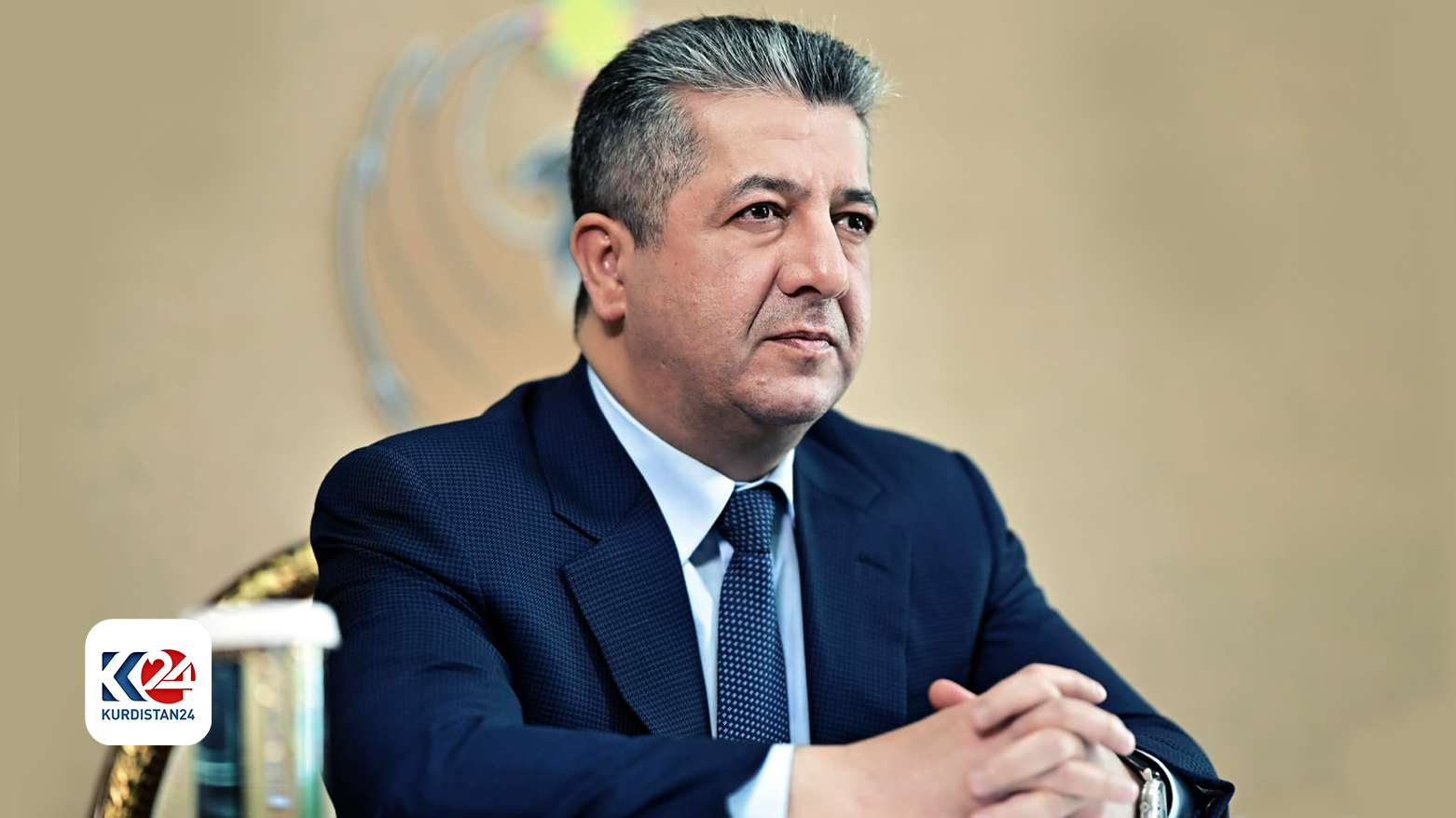Anfal remains a deep wound in Kurdish history: KRG Prime Minister
"Today, we solemnly commemorate a heinous crime that inflicted an indelible scar upon the Kurdish nation. 36 years ago, the former Iraqi regime, in its ruthless pursuit to eradicate the Kurdish nation, perpetrated the Anfal genocide," stated Barzani.

ERBIL (Kurdistan 24) – The Prime Minister of the Kurdistan Region Masrour Barzani has reiterated that the Anfal genocide represents a grave injustice and an enduring wound in the collective memory of the Kurdish people.
Speaking on the 36th anniversary of the Anfal massacre, Barzani emphasized the moral and constitutional obligation of the federal government to compensate the families of Anfal victims and all victims of the Ba'ath regime.
"Today, we solemnly commemorate a heinous crime that inflicted an indelible scar upon the Kurdish nation. Thirty-six years ago, the former Iraqi regime, in its ruthless pursuit to eradicate the Kurdish nation, perpetrated the Anfal genocide," stated Barzani.
"The atrocities of Anfal remain an unparalleled tragedy, and it is our duty to ensure that the sacrifices of our nation are never forgotten. Our future generations must understand the immense price paid by the Kurdish nation in their quest for justice and national rights," he added.
While the Kurdistan Regional Government (KRG) is committed to supporting the families of Anfal victims, Barzani stressed that it is imperative for the federal government to fulfill its moral and constitutional obligation to compensate all victims of the Ba'ath regime.
"Regrettably, there are still forces seeking to deny the legitimate rights of the Kurdish nation, despite their historic struggle for freedom and dignity," Barzani highlighted.
"On this solemn occasion, we pay tribute to the martyrs and victims of the infamous Anfal campaign, whose memory will forever remain alive in our hearts and minds," concluded the statement.
The Anfal genocide campaign started 36 years ago today, with the objective of eradicating the Kurdish nation.
— Masrour Barzani (@masrourbarzani) April 14, 2024
We will never forget the sacrifices made for our freedom and prosperity. pic.twitter.com/bsanho5ff1
The Anfal genocide, orchestrated by the Ba'ath regime under the leadership of Saddam Hussein, resulted in the disappearance of 182,000 civilians and the destruction of over 4,500 villages in southern Kurdistan.
Read More: 36th anniversary of Anfal genocide to be commemorated across Kurdistan Region
The Anfal campaign, commonly referred to as the Kurdish genocide, was a systematic genocide perpetrated against Kurds in southern Kurdistan by the Ba'ath regime under the leadership of Saddam Hussein, during the Iran-Iraq war. The operation involved approximately 200,000 Iraqi troops and resulted in the disappearance of 182,000 civilians and the destruction of over 4,500 villages.
Read More: Mass grave in southern Iraq believed to contain remains of Kurdish Anfal victims
The Anfal campaign unfolded in multiple stages:
1. The first phase (February 9 to February 23, 1988) targeted the Sargallu and Bargallu areas of the Soordash Township in the Dukan district of Sulaimani province.
2. The second phase (February 22 to April 1, 1988) extended to the Qara Dagh region.
3. The third phase (April 7 to April 20, 1988) encompassed the Garmian areas in Kirkuk province and cities such as Khurmatu, Kalar, Kufri, Darbandikhan, Chamchamal, and others.
4. The fourth phase (May 3 to May 8, 1988) covered the length of the small river, including Agh’jalar, Goptapa, Askar, Sheikh Bzeni, Koya, Khalkan, and Dukan.
5. Phases 5, 6, and 7 (May 15 to August 26, 1988) extended to various regions including Balisan, Shaqlawa, Hiran, Nazanin, Smaquli, Alana Valley, Rawanduz, Choman, Kandil Mountain Range, Ranya, Chwarqurna, Hizop, Bawaji Mountain, some villages of Koya, Dibaga, and Perde.
6. The eighth and final phase (August 25 to September 6, 1988) targeted the Badinan region of Amedi, Duhok, Zakho, Sheikhan, Akre, and Barzan.
Since 2007, the Kurdistan Regional Government (KRG) has designated April 14 as a day of remembrance to honor the victims of the Anfal genocide.
Read More: Kurdistan Region aims to 'internationalize' perception of Anfal